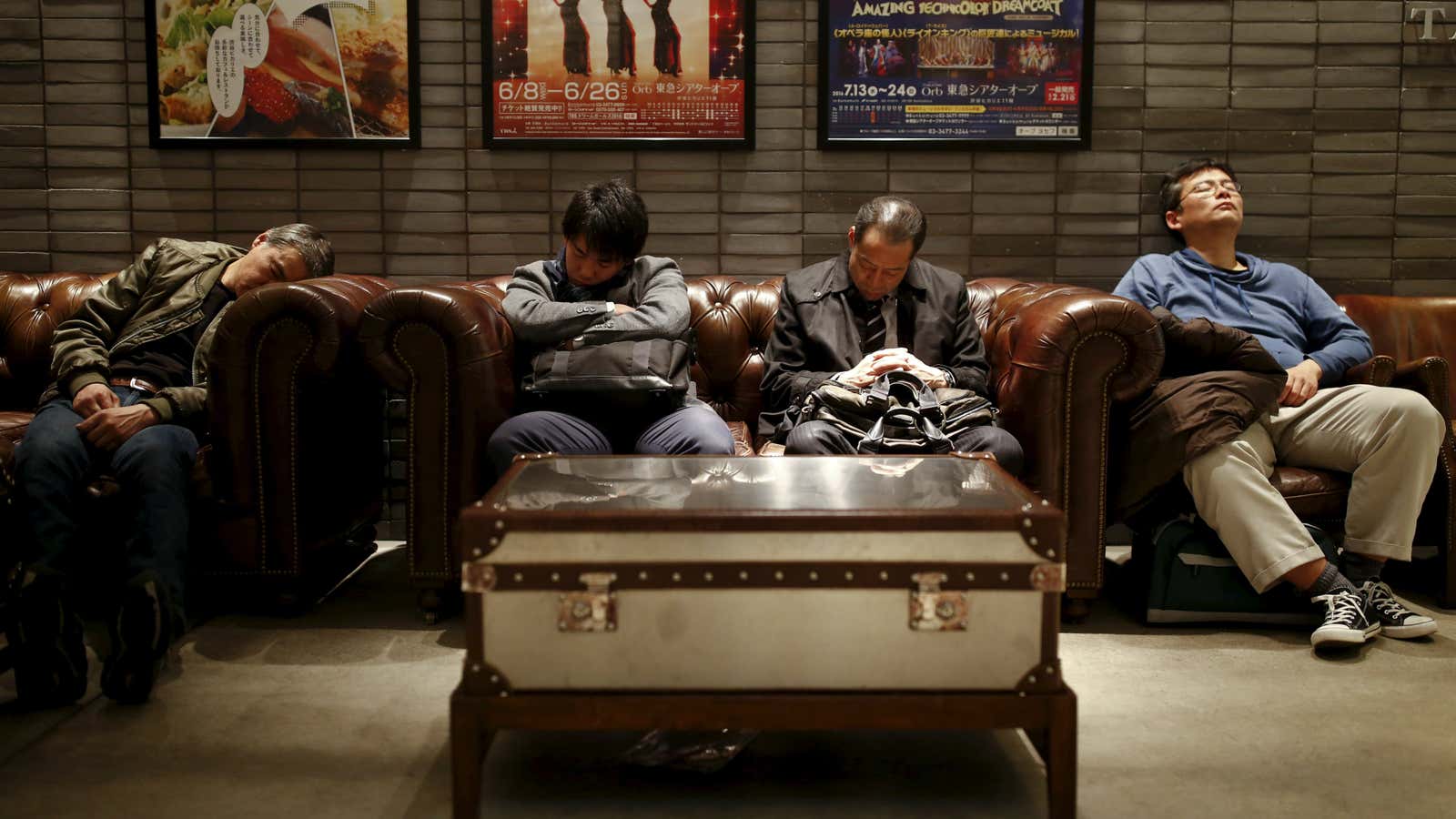Decades of research has struggled to answer the question: why do we sleep? Some think it’s to help clear the waste that accumulates in the brain during waking hours. Others think it’s to reinforce what we’ve learnt through the day. What all researchers can agree on, however, is that a working population that gets good sleep is vitally important to a thriving economy.
According to new estimates from the research firm RAND, the economic cost of sleep-deprived employees is in the billions of dollars for countries like the UK, the US, Canada, Germany, and Japan.
RAND estimates that insufficient sleep could be costing the US economy 1.2 million working days a year—that’s $411 billion, or 2.28% of GDP. For Japan, this is forecast to be 600,000 working days a year, a cost of $138 billion, or 2.92% of its GDP. The UK and Germany could be losing $50 billion and $60 billion respectively (around 200,000 working days a year each), and Canada $21.4 billion (80,000 working days).
The numbers are powerful, and the research is an interesting effort to figure out what effect poor sleep has on workplace productivity. But it has flaws. The RAND estimates are based on extrapolating data from Britain’s Healthiest Workplace (BHW) survey, which asked companies to voluntarily participate in a survey on employee behavior and health. They got 62,000 respondents—but RAND acknowledges that medium-to-large companies and financial industry are overrepresented in the sample.
Another issue is how RAND’s analysis extrapolates a UK survey to draw conclusions about other countries. Once the BHW survey revealed how many hours of sleep Brits are losing, RAND compared those figures to data reported by a 2013 National Sleep Foundation study which reported results in five countries: the UK, the US, Germany, Canada, and Japan. In this way, RAND was able to come up with estimates for the US, Germany, Canada, and Japan. This may be an easy short cut but is unlikely to give truly representative results.
Finally, the estimates are based on self-reported data. As Quartz has reported in the past, surveys like RAND’s aren’t always a reliable way of collecting behavioral data, since respondants are ”likely to suffer from both conscious and unconscious biases, which may make people give a different answer than reality.” So these generalized results for the whole population should be taken with a pinch of salt.
That said, the broader picture RAND’s research paints—we need to get better sleep—is advice we could all heed. The basics: exercise, sleep and eat at consistent times, avoid too much alcohol, and avoid screens late into the night.
And how many hours should you be sleeping each night? The research suggests the average adult needs between seven and nine, but you can also judge what you need for yourself. Ying-Hui Fu, a sleep researcher at the University of California at San Francisco, explains how:
The best way is to listen to your body and figure out what is the best schedule and duration for yourself. For example, when you are on vacation and have no social responsibilities and no other external influences, what is your body telling you to do and how do you feel? What makes you feel the best most of the day? Although that may sound primitive, it’s still the most accurate way.




